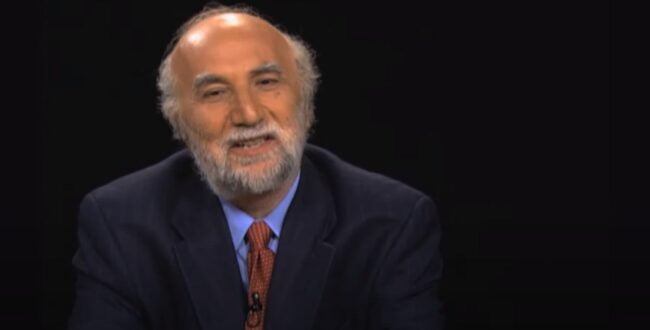רקע
הזירה הפלסטינית כיום תוססת ומבטיחה. במקום שיביעו עצמם בפעולות צבאיות נגד הכיבוש הישראלי, הפלסטינים נוקטים ביוזמות מדודות ורציניות כדי להשיג את מטרותיהם הלאומיות: ראשית, סיום הכיבוש והפסקת הבנייה בהתנחלויות; שנית, כינון מדינה ריבונית בגבולות 67' על בסיס פתרון של שתי מדינות, כאשר ירושלים המזרחית היא בירת המדינה הפלסטינית; ושלישית, הבטחת טיפול הוגן במצוקת הפליטים, הקיימת זה 66 שנה.
לאחרונה באה הדינמיקה החדשה הזאת לידי ביטוי בפיוס בין פתח, הזרם המרכזי של אש"ף, ובין המתנגדים לו, אנשי חמאס. באפריל האחרון, לאחר ארבע שנים ארוכות של חילוקי דעות (אידיאולוגיות ופוליטיות), הציבו שני המחנות את האינטרס הלאומי לפני הפוליטיקה הסיעתית וחתמו על הסכם פיוס.
גורם נוסף בדינמיקה חדשה זו הוא גישתה של ההנהגה הפלסטינית לקיפאון הממושך ולמבוי הסתום שתהליך השלום נקלע אליו מזה 18 שנה. ההנהגה, שאמינותה הלכה ודעכה, נוקטת כעת עמדה עצמאית. היא אומרת לישראל ולקהילה הבינלאומית שהגיע הזמן להכיר במדינת פלסטין ואף לקבלה כחברה בעצרת הכללית של האומות המאוחדות. יש לזכור שפלסטין אינה זרה לאו"ם וכי יש לה מעמד של משקיפה באו"ם מאז 1988. ומה שחשוב עוד יותר, עד היום הכירו 117 מדינות בפלסטין כמדינה והן מקיימות עמה קשרים דיפלומטיים; ואילו למדינות רבות אחרות נציגויות קונסולריות בפלסטין.
מסיבות אלה החליטו הפלסטינים לפנות בספטמבר לאו"ם. אולם הדבר אינו מייתר את הצורך הדחוף במשא ומתן עם ישראל. אנו ערים היטב לכך שהֶסדר המושג במשא ומתן הוא לב-לבו של כל הסכם קבע כולל ובעל משמעות. למעשה, עמדתנו היא שהסכם חייב להביא לידי סיום הקונפליקט ולשים קץ לכל התביעות. שלא כמו ישראל, אנחנו איננו רואים בחיוב הסדר ביניים או צעדי גישור. פתרונות חלקיים אינם טובים לנו; אנו צריכים לשים קץ למצוקה שלנו. ולכן אנו פונים לאמצעי חדש – האו"ם. אולם יש לראות זאת בהקשר הנכון: זהו אישור לשאיפתנו העזה לכונן מדינה עצמאית שתוקם בגבולות 67' ותספק בסיס שונה שיאפשר לנו ולישראלים להכריז על התחלה חדשה ביחסינו ההדדיים. בעולם של ימינו, כאשר אומה אחר אומה נחלצות מריבונותן של מדינות אחרות, פנייה לאו"ם אינה אלא אמצעי לגיטימי להשגת מטרה לגיטימית. במערכת הגלובלית כיום, האו"ם משרת מטרה זו. זה המקום שאליו אומות פונות כדי להשיג הכרה בהן כמדינות – בדיוק כפי שעשתה ישראל עצמה ב- 1947. מה שהיה לגיטימי אז עבור ישראל ודאי לגיטימי לפלסטינים היום, ב-2012.
מבחינת יחסי הפנים, חמאס תומך בהחלטת אש"ף לפנות לאו"ם ומכיר בכך שאש"ף הוא נציגו של העם הפלסטיני. מבחינה יחסי החוץ, ישראל הביעה התנגדות נחרצת נגד היוזמה הזאת, ראתה בו פעולה חד-צדדית ואיימה לנקוט צעדים חמורים. לא נותר לנו אלא לומר שוב ושוב שזהו צעד רב-צדדי מובהק. אין ספק שצעד זה יקבל תמיכה לאומית, אזורית ובינלאומית רחבה, לרבות תמיכתן של המדינות הערביות ושל לא מעט מדינות בדרום אמריקה. עם זאת, ארצות הברית, האיחוד האירופי והקוורטט לענייני המזרח התיכון (ארצות הברית, האיחוד האירופי, רוסיה והאו"ם) מנסים להביא לכך ששני הצדדים יחדשו את המשא ומתן, בטענה שזו הדרך שיש להעדיף.
אין לנו שום תנאים מוקדמים לחידוש המשא ומתן, אנחנו רוצים לוח זמנים המוסכם על שני הצדדים ומושגי יסוד המבוססים על סוגיות של המעמד הסופי של ההסכם. אלו עמדותינו בעוד שכל ראשי הממשלה של ישראל מאז 67', ללא קשר להשקפותיהם הפוליטיות, חיזרו אחר המתנחלים. כעת יש לפחות חצי מיליון ישראלים בהתנחלויות בגדה המערבית ובירושלים המזרחית הפרושׂות על אלפי קילומטרים מרובעים של אדמותינו.
ישראל מבקשת מהפלסטינים להכיר בה כמדינה יהודית כתנאי מוקדם למשא ומתן ודוחה את זכות השיבה לפליטים הפלסטינים או את חלוקת ירושלים. לעומת זאת, בפיוס בין פתח לחמאס היא רואה צעד מוטעה שיש בו כדי למנוע את חידוש המשא ומתן. עמדות אלה אין בהן כדי לעודד את חידוש השיחות.
The Implications to Palestine’s Decision to go to the United Nations
Background
Today’s Palestinian scene is positively upbeat and promising. Instead of expressing themselves in militant action against the Israeli occupation, Palestinians are taking measured and serious initiatives to achieve national goals. Firstly, to obtain freedom, end occupation and the settlement build-up. Secondly, to establish a sovereign state on the 1967 borders based on the two-state solution and to have East Jerusalem as the capital of the state Palestine. And thirdly, to secure fair treatment of the 66-year refugee plight.
This new dynamic has recently exhibited itself in the reconciliation between the PLO’s mainstream Fatah and its opposition, Hamas. After four long years of diverging positions (ideological and political), the two parties put national interest ahead of partisan politics, by signing a reconciliation agreement this past April.
Another element to this new dynamic is the Palestinian leadership’s approach to addressing the 18 year stalemate and protracted peace process. The leadership, whose credibility, as a result, has been on the wane, is now taking an independent stand. They are saying to Israel and the world community, it is high time that the state of Palestine is recognized and even admitted as a member state to the United Nations General Assembly. It must be remembered that Palestine is no stranger to the UN and has maintained offices as an observer at the UN since 1988. More significantly, today, 117 countries have recognized Palestine as a state and maintain diplomatic relations with it; many others have consular offices in Palestine.
For these reasons, the Palestinians made a decision to go to the UN this September. However, this does not bypass the urgent need for negotiations with Israel. We are well aware that a negotiated settlement lies at the core of any meaningful, comprehensive, and permanent agreement. In fact, it is our position that the agreement must end the conflict and finalize all claims. Unlike Israel, we do not look favorably to interim or bridging measures. Half measures are not good for us. We need a conclusion and an end to our plight. So, we are opting for a new measure—the UN. However, this must be seen in its correct context: it is an affirmation of our strong wish to have an independent state established on the 1967 borders, and it would provide a different platform to enable us and the Israelis to herald a fresh start in our mutual relationship. In today's world, where one nation after another emerges from the hegemony of another state, going to the UN is but a legitimate means to a legitimate end. In today's global system, the UN serves that end. It is where nations turn for affirmation of their statehood—just like Israel itself did back in 1947. What was legitimate then for Israel must surely be legitimate for Palestine today—in 2012.
Internally, Hamas supports the PLO’s decision to go to the UN and Hamas recognizes that the PLO is the representative of the Palestinian people. Externally, Israel has voiced strong opposition against this initiative deeming it a unilateral action and threatened to take severe measures. We cannot but reiterate that our action would be the very act of multilateralism. No doubt, this will receive wide national, regional and international support including, the Arab countries, and several Latin American countries. The United States, the European union and the Quartet on the Middle East (the US, the EU, Russia and the UN), on the other hand, are working to get the two parties to resume negotiations and maintain that this would is the preferred approach.
We have no pre-conditions for resumption of negotiations. We want mutually agreed timelines and terms of reference based on the final status issues agreed to in written agreements. Whereas, every single Israeli prime minister, regardless of political persuasion, has courted the settler movement, since 1967. There are now at least half a million Israeli settlers in the West Bank and East Jerusalem covering thousands of square kilometers of our land.
Israel wants recognition from the Palestinians as a Jewish state as a pre-condition to negotiations, rejects the right of return of our refugees or sharing Jerusalem. On the other hand, it has regarded the Fatah-Hamas reconciliation as a misstep and one that prevents resumption of negotiations. These positions do not provide any incentive to resume negotiations.
Dr. Hiba Husseini is a Senior Legal Expert managing a major corporate and business law firm in Palestine known as Husseini & Husseini. She has been serving as Legal Advisor to the Palestinian Negotiations Team since 1994 and is the Head of the Legal Committee to the Final Status Negotiations. Dr. Husseini also serves on the boards of various non-profit organization and has written and published worldwide.















